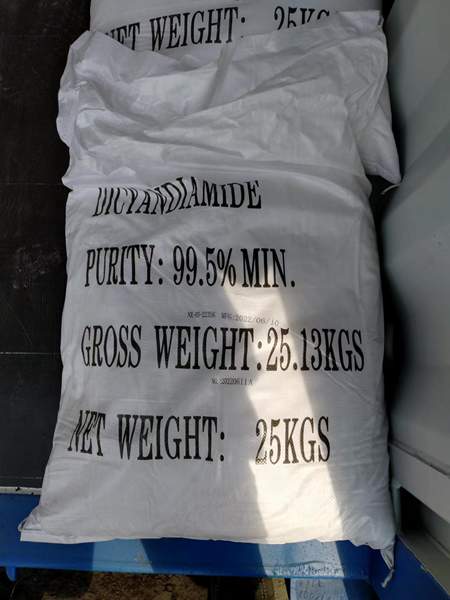- Chemical Formula: C₂H₄N₄
- Molecular Weight: 84.08 g/mol
- CAS Number: 461-58-5
- Appearance: White crystalline powder
- Flame Retardant Type: Nitrogen-based, halogen-free
Key Flame Retardant Properties:
- Nitrogen-Rich Composition: Releases non-flammable gases (like ammonia) when heated, diluting oxygen and suppressing flames.
- char Formation: Promotes the formation of a protective char layer that insulates the material and slows flame spread.
- Synergistic Effects: Often combined with phosphorus-based or other nitrogen-based flame retardants to enhance effectiveness.
Advantages:
- Halogen-Free & Non-Toxic: Safer for the environment and human health compared to halogenated alternatives.
- High Thermal Stability: Can withstand high processing temperatures, making it suitable for various materials.
- Low Smoke Emission: Reduces smoke and toxic gas release during combustion.
- Multifunctional Role: In addition to flame retardancy, DCD acts as a curing agent for epoxy resins and an intermediate in chemical synthesis.
Applications:
- Epoxy Resins & Coatings: Used in laminates, adhesives, and powder coatings.
- Textiles & Fabrics: Enhances flame resistance in fabrics for protective clothing and industrial textiles.
- Polymer Composites: Works well in polyurethane foams, polyolefins, and thermoplastics.
- Construction Materials: Adds flame retardancy to insulation boards, sealants, and adhesives.
Processing Considerations:
- Particle Size & Dispersion: Fine particle sizes improve dispersion and performance in polymer matrices.
- Synergists: Combines well with phosphates, melamine, and other flame retardants for enhanced results.
- Loading Levels: Typical loading ranges from 5–20%, depending on the material and required flame resistance.

